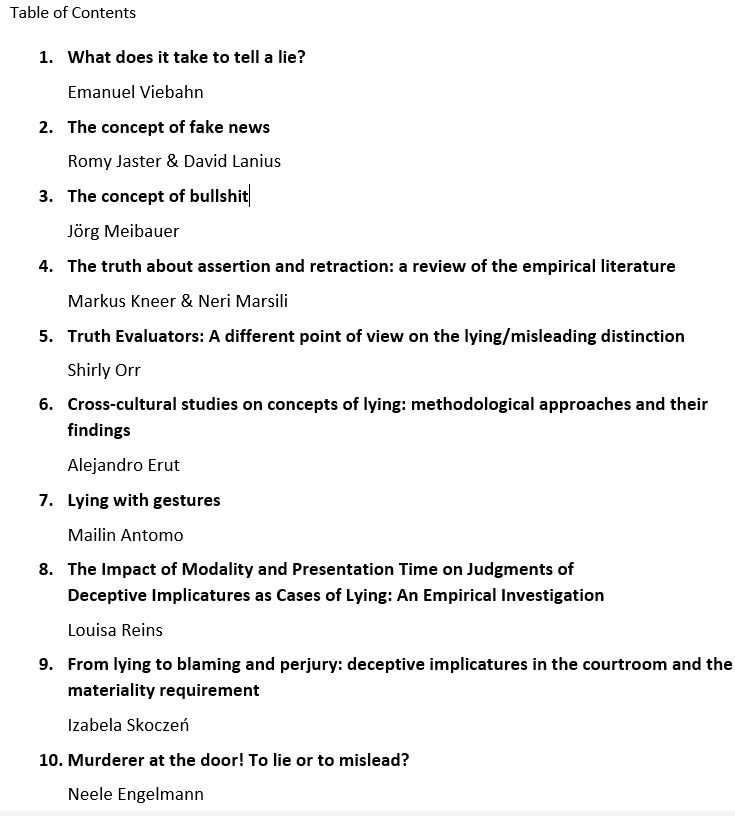Alex Wiegmann
@alexwiegmann.bsky.social
Philosopher/Cognitive Scientist at University of Granada (previously RUB). Interested in moral judgments, deceptive communication, AI, open science and stuff.
The new journal "Experimental Philosophy" is now on BlueSky.
@xphijournal.bsky.social
bsky.app/profile/xphi...
Please share!
@xphijournal.bsky.social
bsky.app/profile/xphi...
Please share!

September 6, 2025 at 2:26 PM
The new journal "Experimental Philosophy" is now on BlueSky.
@xphijournal.bsky.social
bsky.app/profile/xphi...
Please share!
@xphijournal.bsky.social
bsky.app/profile/xphi...
Please share!
Moreover, lie and falsity attributions correlated strongly in our between-subjects design. In a follow-up experiment (in only three countries), we found this strong correlation also with a within-subject design design. Preprint: osf.io/preprints/ps...
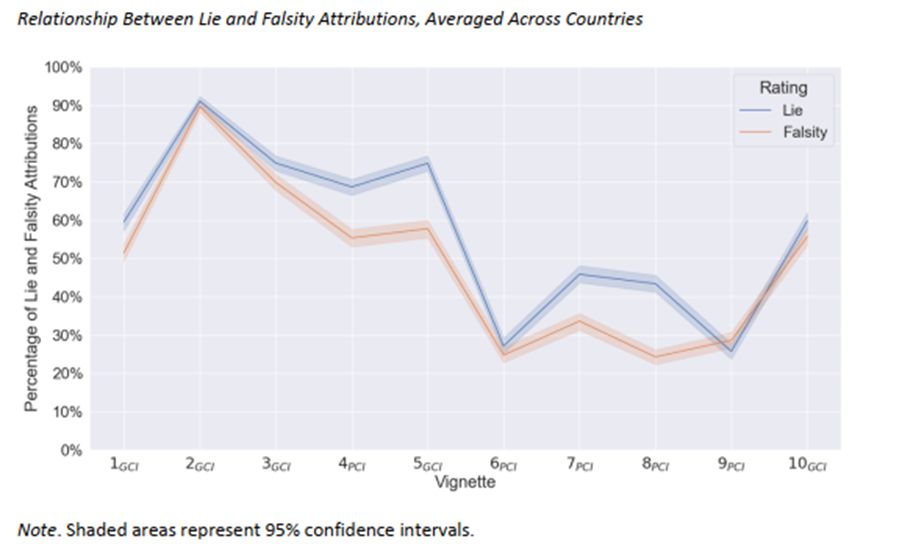

August 27, 2025 at 4:41 PM
Moreover, lie and falsity attributions correlated strongly in our between-subjects design. In a follow-up experiment (in only three countries), we found this strong correlation also with a within-subject design design. Preprint: osf.io/preprints/ps...
In one condition, we asked whether the speaker lied, in another whether what s/he said was true or false. Although DIs can be considered borderline cases (true on the explicit level, false on the implicit level), we found a high degree of similarity between the ten countries.


August 27, 2025 at 4:41 PM
In one condition, we asked whether the speaker lied, in another whether what s/he said was true or false. Although DIs can be considered borderline cases (true on the explicit level, false on the implicit level), we found a high degree of similarity between the ten countries.
In our main experiment, we presented participants from ten countries (Chile, China, Germany, Israel, Japan, Mexico, South Africa, Spain, UK, US) with ten cases of deceptive implicatures (DIs). DIs are literally true but can nevertheless trick the hearer into a false belief.

August 27, 2025 at 4:41 PM
In our main experiment, we presented participants from ten countries (Chile, China, Germany, Israel, Japan, Mexico, South Africa, Spain, UK, US) with ten cases of deceptive implicatures (DIs). DIs are literally true but can nevertheless trick the hearer into a false belief.
Randomly discovered that I have a signed book by Daniel Dennett 🤯 (the book was left, among others, in the office of a former colleague)

May 31, 2025 at 2:48 PM
Randomly discovered that I have a signed book by Daniel Dennett 🤯 (the book was left, among others, in the office of a former colleague)
Lay people clearly think you can lie with pictures in form of a Content lie and a Target lie, and also tend to agree that deceiving in form of 3. constitutes lying.

February 23, 2025 at 4:39 PM
Lay people clearly think you can lie with pictures in form of a Content lie and a Target lie, and also tend to agree that deceiving in form of 3. constitutes lying.
Preprint: osf.io/preprints/os...
Experimental setting: Two persons communicate via a messenger. A wants to buy a used bike from B and asks whether it is scratch-free. The bike has a scratch. B replies with a picture of the bike.
Experimental setting: Two persons communicate via a messenger. A wants to buy a used bike from B and asks whether it is scratch-free. The bike has a scratch. B replies with a picture of the bike.

February 23, 2025 at 4:39 PM
Preprint: osf.io/preprints/os...
Experimental setting: Two persons communicate via a messenger. A wants to buy a used bike from B and asks whether it is scratch-free. The bike has a scratch. B replies with a picture of the bike.
Experimental setting: Two persons communicate via a messenger. A wants to buy a used bike from B and asks whether it is scratch-free. The bike has a scratch. B replies with a picture of the bike.
🚨paper alert🚨 with Emanuel Viebahn
Can you lie with pictures?
Some (says-based) theories deny this possibility but lay people clearly think you can lie with pictures – and in at least three different ways.
Forthcoming in AJP.
Short thread with link to paper below.
Can you lie with pictures?
Some (says-based) theories deny this possibility but lay people clearly think you can lie with pictures – and in at least three different ways.
Forthcoming in AJP.
Short thread with link to paper below.

February 23, 2025 at 4:39 PM
🚨paper alert🚨 with Emanuel Viebahn
Can you lie with pictures?
Some (says-based) theories deny this possibility but lay people clearly think you can lie with pictures – and in at least three different ways.
Forthcoming in AJP.
Short thread with link to paper below.
Can you lie with pictures?
Some (says-based) theories deny this possibility but lay people clearly think you can lie with pictures – and in at least three different ways.
Forthcoming in AJP.
Short thread with link to paper below.
Chapter outlines...

February 21, 2025 at 1:57 PM
Chapter outlines...
What others are saying...

February 21, 2025 at 1:57 PM
What others are saying...
❤️Finally❤️
Short thread with more info
@neeleengelmann.bsky.social @narsimarsi.bsky.social @louisareins.bsky.social
Short thread with more info
@neeleengelmann.bsky.social @narsimarsi.bsky.social @louisareins.bsky.social

February 21, 2025 at 1:57 PM
❤️Finally❤️
Short thread with more info
@neeleengelmann.bsky.social @narsimarsi.bsky.social @louisareins.bsky.social
Short thread with more info
@neeleengelmann.bsky.social @narsimarsi.bsky.social @louisareins.bsky.social
After more than 80 EXTRA talks, the series comes to an (happy) end this Wednesday 🥲
Everyone welcome, just send me a DM/Email.
Everyone welcome, just send me a DM/Email.

January 27, 2025 at 4:06 PM
After more than 80 EXTRA talks, the series comes to an (happy) end this Wednesday 🥲
Everyone welcome, just send me a DM/Email.
Everyone welcome, just send me a DM/Email.
Everyone welcome!
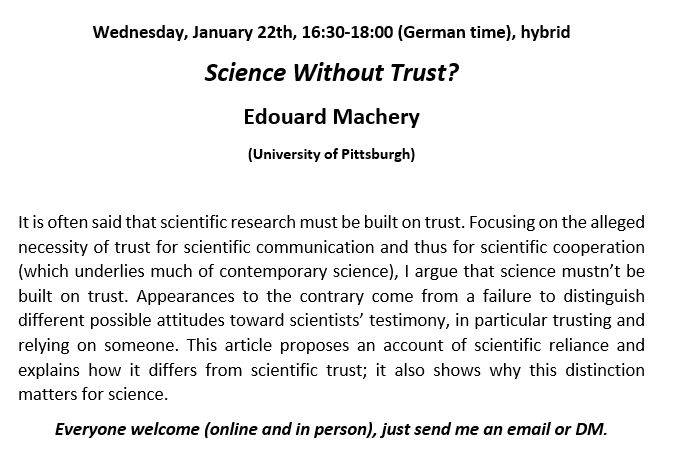
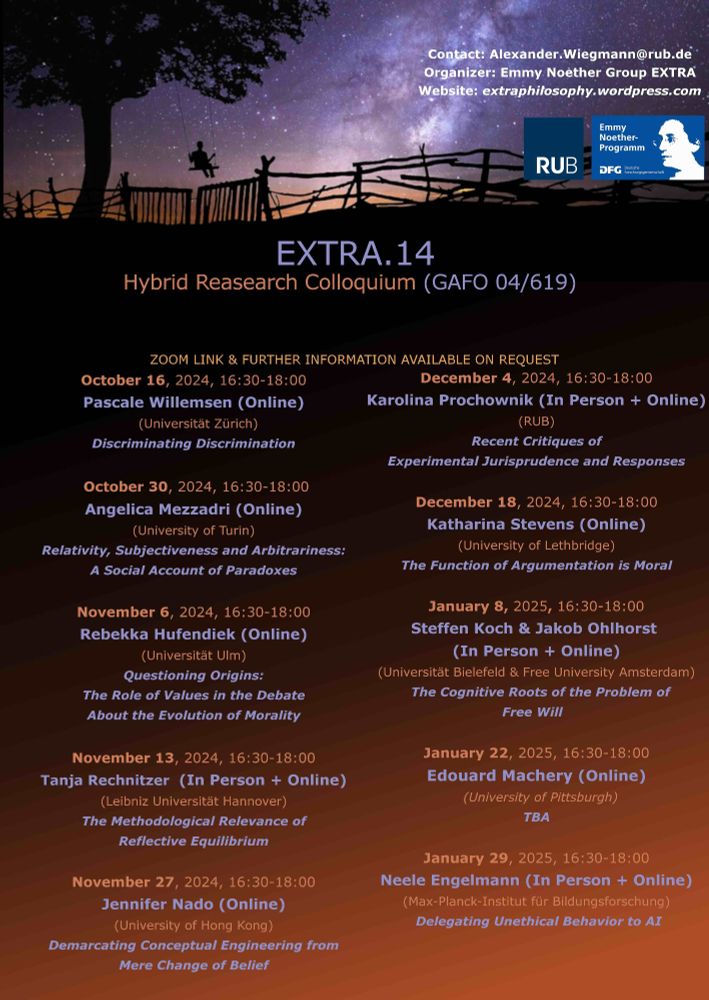
January 17, 2025 at 4:47 PM
Everyone welcome!
Everyone welcome! Just send me a DM or email if you would like to join.


January 6, 2025 at 2:01 PM
Everyone welcome! Just send me a DM or email if you would like to join.
Everyone welcome, just write me a DM or email if you would like to join.


December 16, 2024 at 5:08 PM
Everyone welcome, just write me a DM or email if you would like to join.
Everyone welcome, send me a DM or email if you would like to join.


December 2, 2024 at 5:06 PM
Everyone welcome, send me a DM or email if you would like to join.
Everyone welcome, just write me an email or DM if you want to join!


November 25, 2024 at 10:20 AM
Everyone welcome, just write me an email or DM if you want to join!
Wednesday, 13th November, 16:30 – 18:00 (German Time), changed to online only. If you like to join, just send me an email or DM.


November 11, 2024 at 1:25 PM
Wednesday, 13th November, 16:30 – 18:00 (German Time), changed to online only. If you like to join, just send me an email or DM.
Final proofs submitted...

November 2, 2024 at 12:40 PM
Final proofs submitted...
Last season of the EXTRA colloquium. Everyone welcome, just send me a DM or email if you want to join.

October 22, 2024 at 11:39 AM
Last season of the EXTRA colloquium. Everyone welcome, just send me a DM or email if you want to join.
Happy to announce a new volume in the Bloomsbury series “Advances in Experimental Philosophy”: Lying. It will mainly about (experimental work on) the concept of lying, but also about related concepts and non-conceptual issues. Hopefully out 2024. Table of contents below.

April 16, 2024 at 5:14 PM
Happy to announce a new volume in the Bloomsbury series “Advances in Experimental Philosophy”: Lying. It will mainly about (experimental work on) the concept of lying, but also about related concepts and non-conceptual issues. Hopefully out 2024. Table of contents below.
Finally, participants were quite confident in their lie and truth evaluations, and moral evaluations of the cases were also similar between countries. Preprint: osf.io/preprints/ps...
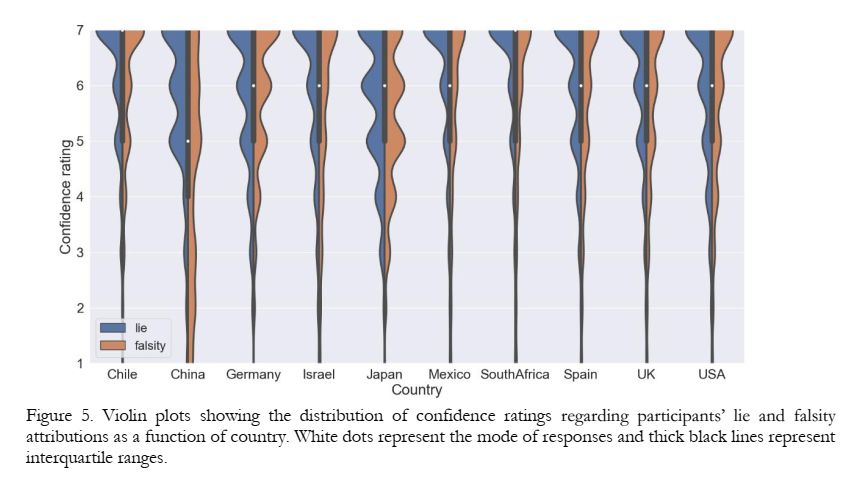

April 3, 2024 at 1:24 PM
Finally, participants were quite confident in their lie and truth evaluations, and moral evaluations of the cases were also similar between countries. Preprint: osf.io/preprints/ps...
Perhaps surprisingly, lie attributions (r=.93) as well as falsity attributions (r=.91) were quite similar between the ten countries.
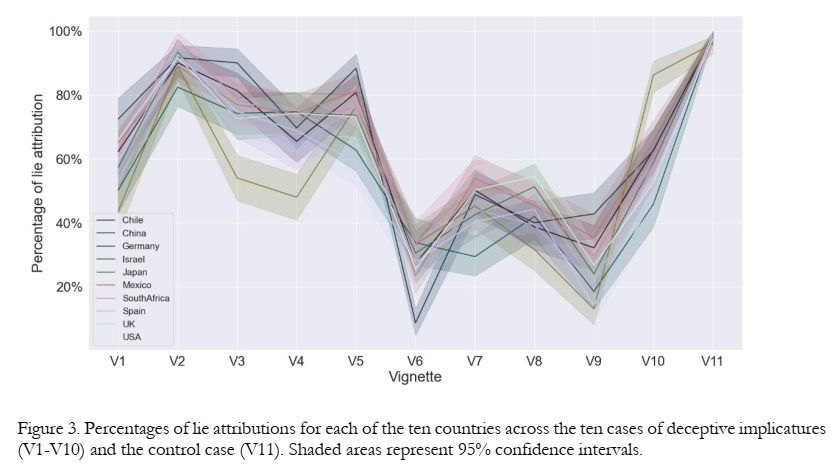

April 3, 2024 at 1:23 PM
Perhaps surprisingly, lie attributions (r=.93) as well as falsity attributions (r=.91) were quite similar between the ten countries.



